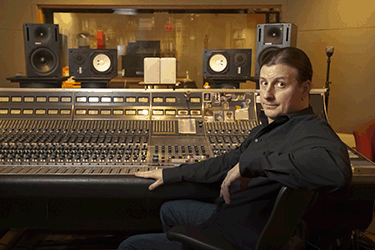SYMCO Boston Panel: Q&A with Matt Russell, MIT

A daily selection of features, industry news, and analysis for AV/IT professionals. Sign up below.
You are now subscribed
Your newsletter sign-up was successful
- Convergence, what have you done for me lately?
- A lot, evidently, but quantifying it is the hard part. And from what I hear on the AV streets, even with all this fancy new IP-based everything, those IT people are still a challenge to contend with on the client side.
So let’s get together and talk about it. Or “tawk” about it, in the local parlance, at the SYMCO Regional Technology Showcases in Boston, MA, and New York, NY, on October 14 and 16, respectively. But first, let's catch up with one of the panelists who will be joining me on the User Panel Discussion in Boston.
Matt Russell
Meet Matt Russell, Technical Staff Member, MIT:
Some technologists are born, others are made. When did you know you were a tech-head?
Probably around age 8. I would take time to not only listen to records that I loved over and over, but I always took note of the way they sounded overall and the way each voice and instrument sounded. I made mental notes about approaches that were used without realizing that I was doing so.
What was the most surprising u-turn or detour you've seen occur in the technology landscape so far in your career?
The FCC selling off the white space area of radio frequencies (700-800Mhz). It was hard to recover from that on our campus, but there was a ton of innovation and improvements made to wireless mic technology around that time. It seemed like every manufacturer introduced new and improved systems to either keep their customer base or to win new ones.
A daily selection of the top stories for AV integrators, resellers and consultants. Sign up below.
What is most misunderstood about IT?
That AV people can be IT/computer and vice versa — I've never seen both done well by the same person. Never. Both require a passion for very different things and they don't often overlap very well in a single person. While they each may have some overlapping skill sets and experience, they require so much dedication and focus that's it's rare to find a great audio engineer, video tech, or system designer that's also an IT wizard. If you had a choice, you probably wouldn't want your plumber roofing your house and I can say with certainty, you wouldn't want it the other way around either.
Why is FaceTime so much easier than videoconferencing? How do you explain that to users?
We basically say that it's consumer grade, point to point and one on one, with very little additional features available. It's a same-format box with picture and sound with a built in mic and camera, that's about it. While adaptable, it's not designed for much more of than an audience of more than one on each side, using exactly the same kind of device, an Apple phone or computer. Professional video conferencing can be designed to meet custom needs that can be extremely complex and high quality if desired. It can be more of a TV-like experience than FaceTime can...at least at the moment. We'll see what Apple has to say about that in the years to come.
What's the most common request you get from your users?
Three things: ease of use with touch panel user interface design no matter how complex the systems are, as much gain before feedback as possible, and great clarity in the audio speech systems.
Free association: What do you think of when you hear "AV"?
